German Shepherds are often seen as the symbol of a tough dog, but that doesn’t mean that’s their only positive trait.
Many of them are equally as empathetic as they are protective and are more than ready to jump in to help you when you’re sad.
This means that your German Shepherd may even lick you when you cry.
Though, the reason isn’t always sentimental. Sometimes it’s a very base like for the taste of your tears, as funny as that may sound.
But, is there anything more to that? Well, let’s find out, shall we?
Here are the primary reasons why your GSD licks you while you cry and in general:
1. He’s Trying To Comfort You
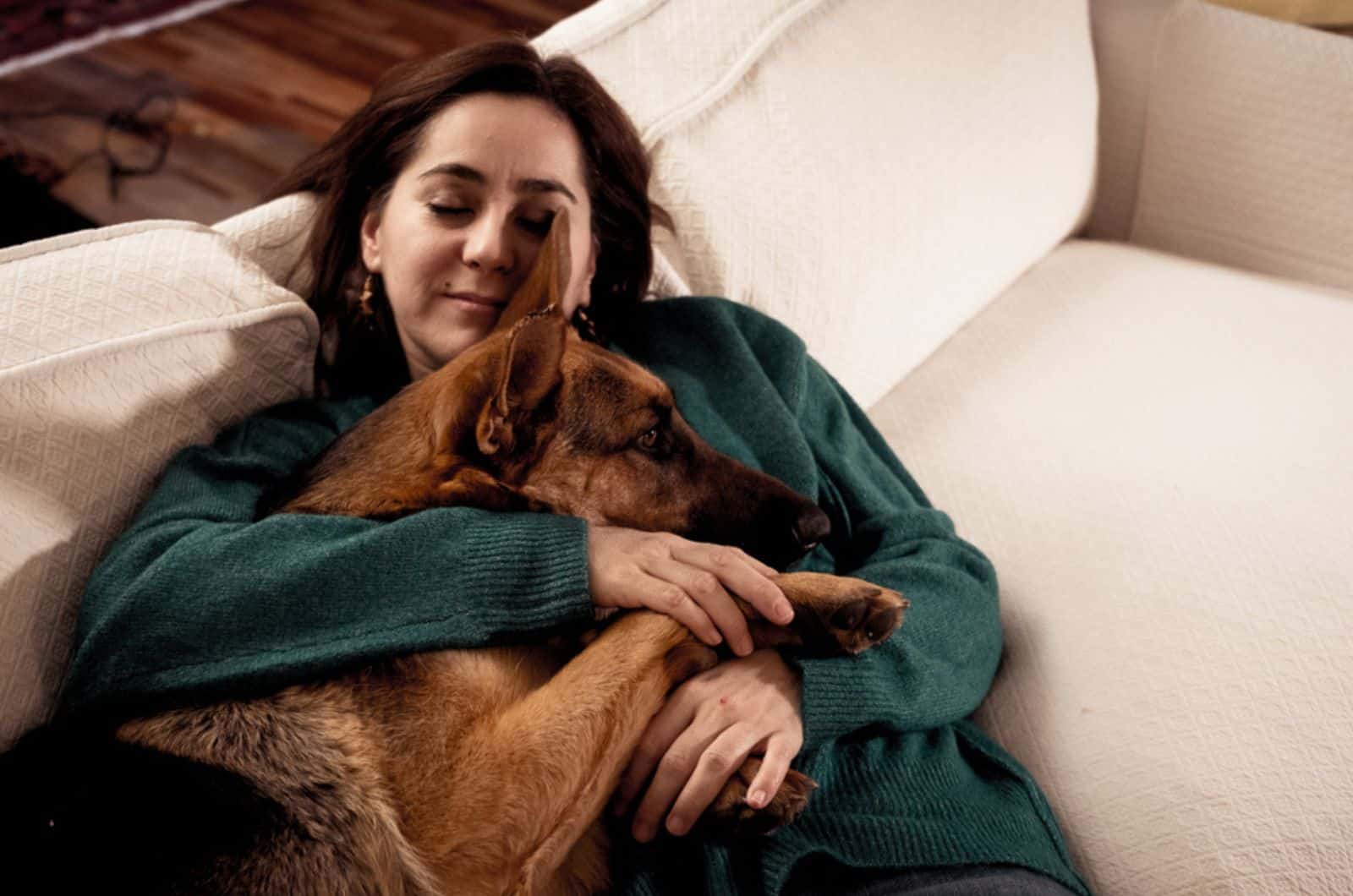
The first and most logical reason is that he’s doing it for comfort.
He can sense your shift in emotion and literally smell it[1], after which his empathy will kick in and he’ll move on over to try and comfort you through licks
You are their family member after all now and family sticks together.
Normally they’ll just lick your hand or something of the sort, but they can lick away at your tears too as if they’re trying to wipe them off.
It may be a bit too much personal space invasion, but all your Sheppie is trying to do is help. Can you blame him?
2. Trying To Soothe Away The Pain
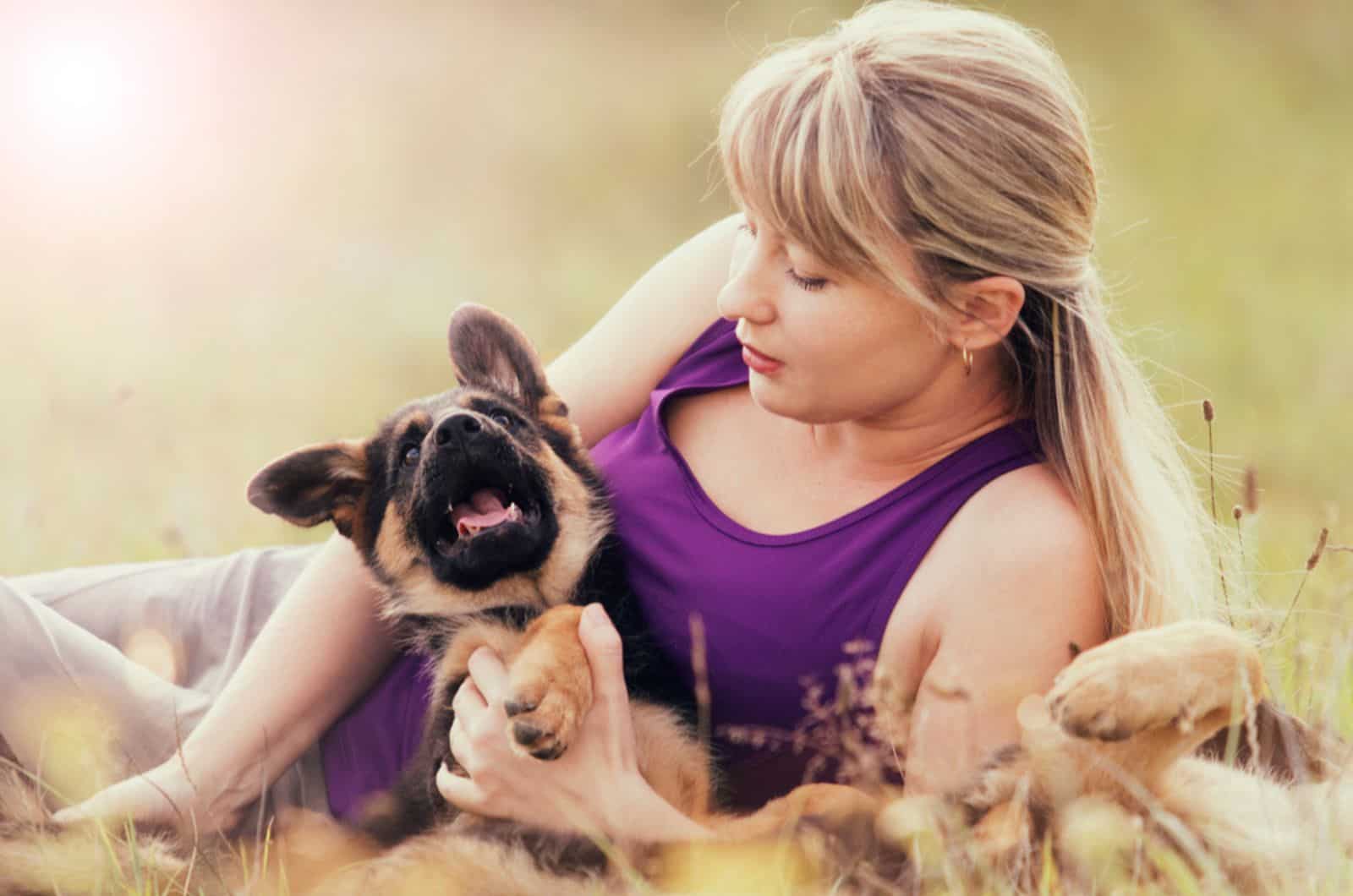
If you’re crying because of an injury, your dog will, similarly to #1, try to lick at the apparent source of the pain, trying to stave the pain off and hopefully make you feel better.
They do the same for their own injuries, so it’s only logical that they’d do it for yours too.
3. He’s Anxious
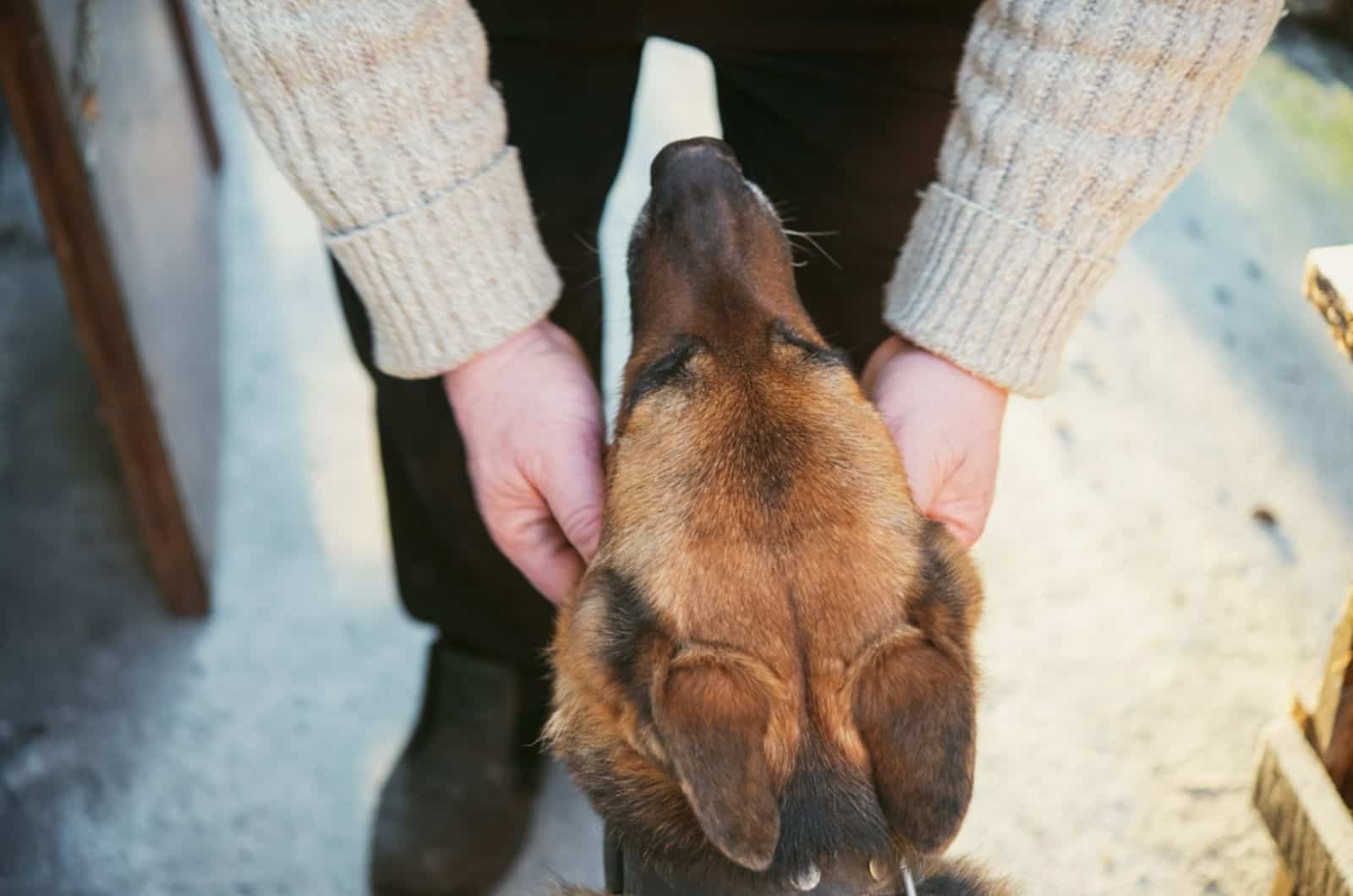
The poor pup may be empathizing with you a bit too much and your stress may be affecting him just as much as it is you.
This could be the German Shepherd’s coping mechanism at work which often involves licking to help destress.
It may feel unusual, but, once again, it’s pretty common behavior.
Once your own reason for crying subsides, if your dog is still feeling anxious and down, be sure to give him some love too. He’s a good boy after all.
4. He Likes The Taste
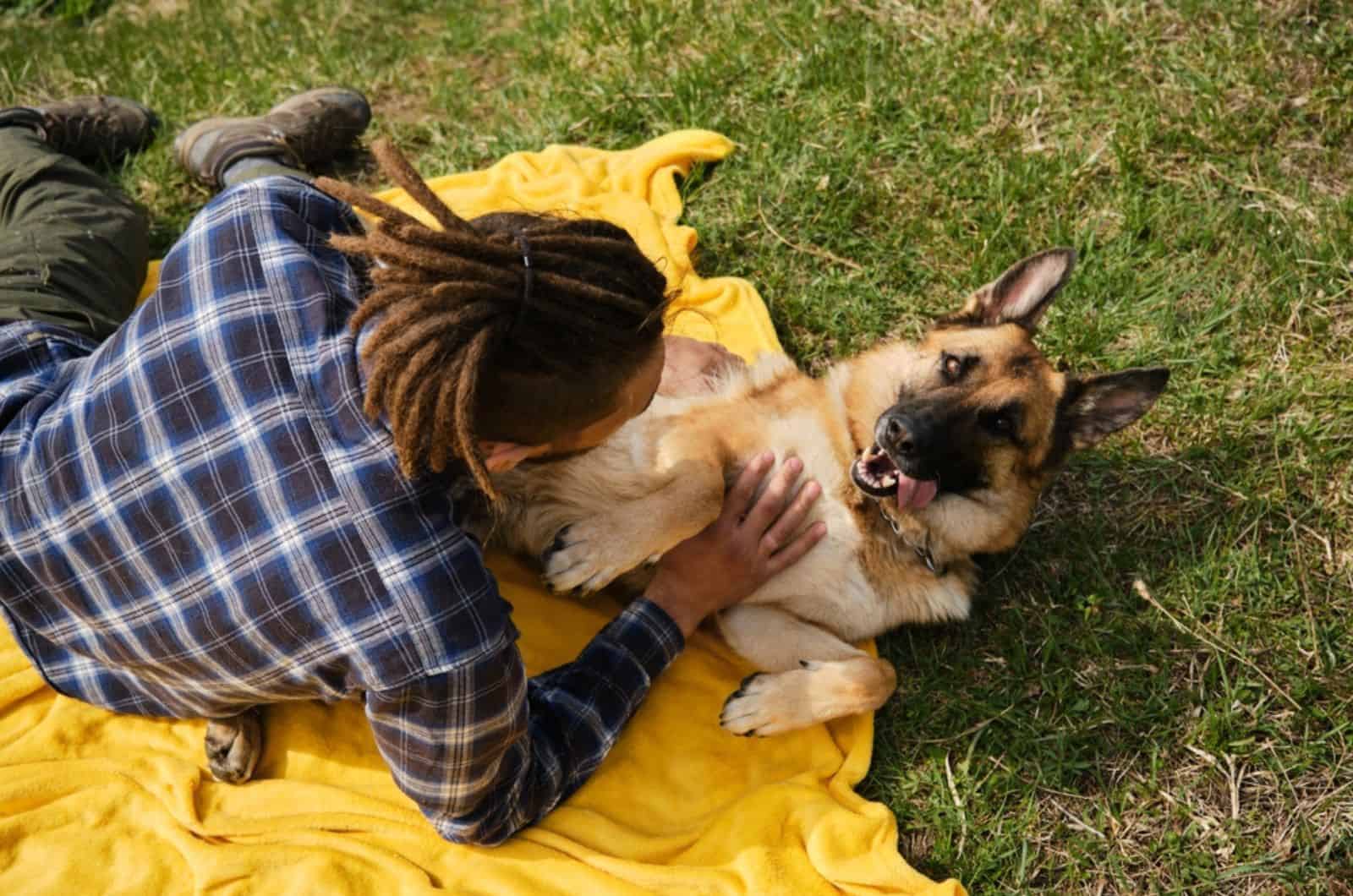
Arguably the oddest reason on the list, but he may just be licking at you because he likes the taste of your tears.
Dogs like exploring the world through their senses of smell and taste, and in the case of the latter, we apparently taste real good to dogs and the reason could be as simple as this.
Do be sure to set some boundaries though so it doesn’t get a bit too out of hand and intrusive in case you’re busy doing something else.
5. It’s Behavior That You May Have Encouraged On Accident At Some Point
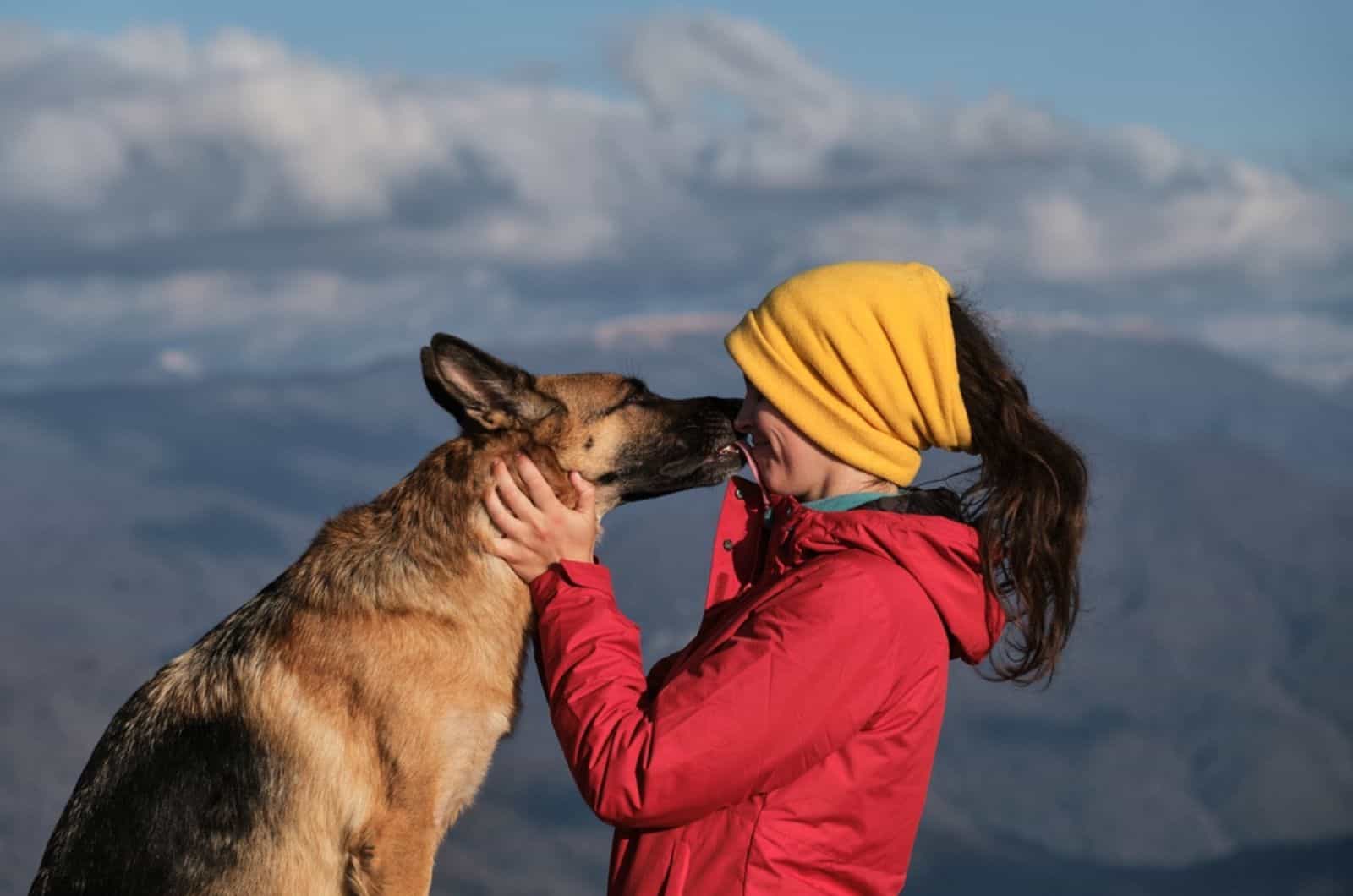
The final reason for repeated licking when you’re crying could’ve been an inadvertent act on your part or that of his mother.
Whenever young pups are upset, the mother will lick them to calm them down, and he’s trying to translate it to his own behavior patterns.
And, if he did it once and it seemed to have worked on you, then chances are he’ll keep doing it whenever he senses your sadness or frustration.
This one ties into all the others and is usually unavoidable, but can be gotten rid of through proper training if it really bothers you.
Is It Okay For My German Shepherd To Lick Me When I Cry Or Otherwise?

For the most part, it is, just be careful not to let them near any open wounds or orifices.
As I’ve mentioned earlier, dogs experience the world through their sense of taste and smell, and German Shepherds are no different.
Who knows what he has licked or eaten prior as bacteria and other foreign matter could transfer over to the wound and infect it which will only make a bad situation worse.
Your tear ducts and your mouth as well.
Even if his mouth is squeaky clean, there’s still the matter of other potential bacteria that could live in the dog’s mouth which could cause further complications.
Finally, if you’re allergic to dog saliva, it’s best to not let him lick you whatsoever otherwise you’ll end up with a nasty rash.
How Can I Stop My German Shepherd From Licking Me?

This part requires a bit of discipline on your part as you’ll need to show him some tough love.
You’ll need to present the act of licking you when you’re sad as something bad, either by simply saying “no” or by putting him out of the room after he does it.
Once your own emotions wane, you can let him back into the room and he’ll see that you’re back to your old self again, indicating that there was no need for licks in the first place.
It may feel somewhat harsh, but that’s what training is usually all about.
In Conclusion
Your German Shepherd has his instincts just like any other dog. He’ll come over to you to lick you when you cry to try and soothe you and make you feel better.
If an injury is the cause, he may go for that area in particular instead.
In rare cases, he’ll do it just because he likes the taste of your tears.
However, what’s important to understand is that, while an endearing gesture, it’s unhygienic and potentially unsafe.
It’s perfectly fine to let him lick you, just keep it away from any open wounds or actual orifices where the germs from the saliva could enter the bloodstream.
It may lead to more trouble than the act of licking is worth.
Make sure to set your boundaries around this particular behavior early if you want him to stop because, once encouraged, it’ll be hard for the GSD to stop a developed habit.
That said, there’s nothing that a bit of professional training can’t fix, and the earlier you get to it, the better.
Until next time, pet parents.
READ NEXT: Q And A: Why Does My Dog Lick Me When I Cry?
References:
[1] Agata K.-K., Martyna W., Mikołaj Z., Julia M., Katarzyna B., Michał D. (August, 2021.), Canine Olfaction: Physiology, Behavior, and Possibilities for Practical Applications, DOI
